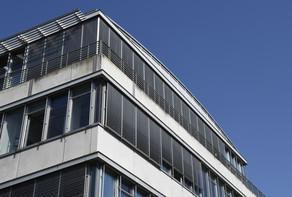F 07 - Urban regeneration fostered by river restoration in post-industrial regions: The Ruhr and the Mersey Belt in a comparative perspective
Betreuung: Prof. Dr. Thorsten Wiechmann, Dr. Letizia Imbres (ROP), Dr. Sebastian Dembski
Over the past 50 years, many regions of the Global North have undergone deindustrialization. The process, implying a progressive shift from a manufacturing to a service-based economy, has been often accompanied by other symptoms of structural change, including advanced demographic change with aging and low birth rates as well as increasing socio-spatial segregation along ethnic and class lines. Moreover, regions historically dominated by heavy industry have been left facing pressing environmental problems linked to water, air and soil pollution, which not only caused chronic health issues to the local population, but also posed severe threats to ecosystems. In this perspective, the Ruhr and the Mersey Belt represent quintessential examples of such an all-encompassing process of structural change. Sharing many common cultural, political and contextual characteristics, both regions undertook a restructuring process in which river restoration and ecosystem rehabilitation played a key role in boosting economic and socio-spatial regeneration. On the one hand, located at the center of the Ruhr area, the River Emscher was severely damaged by a century of mining and open sewerage. Efforts to restore the river to its natural state were initiated by the IBA Emscher Park (1989-1999), launched to promote structural change in the region, and culminated with the completion of the underground Emscher wastewater sewer in 2021. The wastewater project, complemented by the environmental reconstruction of the river landscape, was carried out by the public water board Emschergenossenschaft. The newly restored Emscher valley has attracted new businesses, along with providing an enabling environment for waterside regeneration and social change. On the other hand, in 1985, the Mersey Basin Campaign was founded in North West England as a government-backed movement aiming at improving water quality in the River Mersey and encourage waterfront redevelopment. At the end of its 25-year lifespan, the Campaign left behind a river that is “cleaner now than at any time since the Industrial Revolution”, contributing to turn it into an important asset in the economic regeneration of the region (Jones 2006). Since 2010, the Mersey Rivers Trust has continued in the footsteps of the Campaign.
Against this background, the F-Projekt will take the form of a group work in which students conduct a study on urban regeneration led by river restoration in the Ruhr and the Mersey Belt aiming at:
- Mapping and classifying riverside areas that have been redeveloped in the past 30 years in order to create a database which would allow to compare the two cases;
- Carrying out in-depth, qualitative analysis of investigation areas selected from the database to develop planning and design strategies and stimulate knowledge transfer between the two regions.
Zeit und Ort
| Tag | von | bis | Rhythmus | Ort | Beginn | Ende |
|---|---|---|---|---|---|---|
| Di | 14:00 | 18:00 | wöchentlich | GB I - 401 | 04.04.2023 | 11.07.2023 |
| Fr | 14:00 | 18:00 | wöchentlich | GB I - 401 | 07.04.2023 | 14.07.2023 |
Leistungsnachweis
Prüfung: Modulprüfung (benotet), 2 Studienleistungen (unbenotet)
Prüfungsform: Abschlussbericht inkl. Disputation
Studienleistungen: (A) Exposé; (B) Zwischenpräsentation, Plakat und Abstract im Rahmen des Projektmarktes
Bemerkung
Working language of the F-Projekt is English. The F-Projekt will be carried out in cooperation with the University of Liverpool.
Field work in the Mersey Belt will take place in March 2023. Travel and accommodation costs per participant are estimated to be 600 - 700 euros. It is intended to apply for travel grants. However, funding cannot be guaranteed.
Voraussetzung
B.Sc. RP (2012): Erfolgreicher Abschluss von Modul 2 zur Teilnahme am F-Projekt. (Stichtag: Anmeldung auf der F-Projekt-Börse)
Art der Veranstaltung
Projekt
Dauer: 8 SWS
Punkte: 10





